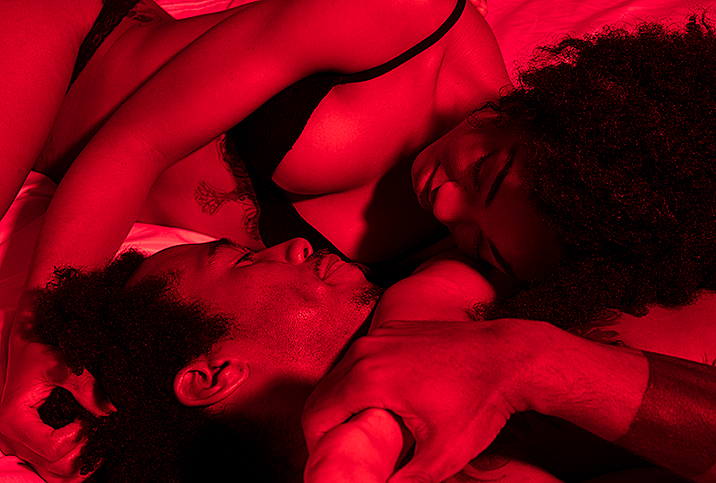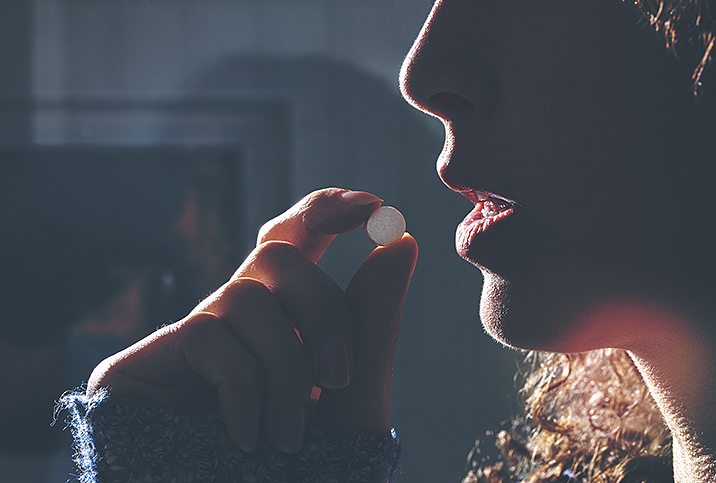Depression’s Effects on Your Love Life

Conversations about depression—a mood disorder that affects more than 17 million Americans age 18 and older—and other mental health issues have long been stigmatized. But they’re not the only issues that get swept under the rug. Open dialogue about sex is taboo, as well.
As attitudes around these topics mellow, however, the discourse about the intersection between mental health, depression and sex has increased. That’s a good thing.
What is depression?
Everyone feels sad sometimes, but depression is more than just your garden-variety blues. When feelings of intense sadness persist for an extended period of time or impact one’s ability to participate in life, depression—also known as major depressive disorder or clinical depression—may be at play.
This mood disorder can manifest in many emotional, mental and physical ways, such as:
- Persistent feelings of sadness, worthlessness and/or guilt
- Changes in weight or appetite, including eating too much or not enough
- Fatigue or sleep difficulties, including insomnia or sleeping too much
- “Brain fog” or problems with concentration, memory and mental processing, as well as slowing down of physical movements
- Lack of interest or pleasure in once-loved activities
- Thoughts of suicide or death
While this isn’t an exhaustive list of the symptoms of depression, if you are dealing with five or more of these symptoms over a two-week period, you may be suffering from depression and should seek professional help. Other medical conditions, such as hypothyroidism, may present similar to depression. Make sure you get annual physical exams and routine lab work to rule out other causes of depressive symptoms.
Depression & your love life
Depression can affect your sex life in many ways. Symptoms of depression such as fatigue, lack of interest in activities and the inability to experience pleasure can all make sex seem undesirable or even impossible. Additionally, the way depression affects brain chemistry may lead to further sexual dysfunction or decreased libido.
When depression severely impacts your sex life, it can lead to conflict in intimate relationships, and repeated rejection can make your partner feel sad, undesirable or frustrated.
Antidepressants & sexual function
A common treatment for depression is antidepressants, which are medications that fall under several classes and, unfortunately, can cause sexual side effects.
For example, selective serotonin reuptake inhibitors (SSRIs), a type of drug that works with the hormone serotonin, can cause physical reactions such as erectile dysfunction, anorgasmia (inability to orgasm) and decreased libido.
Other classes of antidepressants may help you avoid such side effects. Working with a medical professional to find the right medication and dosage in regard to efficacy and a lack of sexual side effects is essential, especially since each individual’s reaction to a given antidepressant is unique.
Finding solutions
If taking your antidepressant results in negative sexual side effects, don’t be afraid to tell your doctor so you can develop a new treatment plan. This may mean trying other antidepressants or finding different ways to manage depression. Doctors usually like to keep patients on the same medication for at least four to six weeks before changing to another med. Of course, if you’re suffering serious side effects, let your doctor know so they can stop or change the medication right away.
Some people also help regulate their depression through exercise and diet, while others use talk therapy to work through their emotions.
For resistant depression, new treatment options are becoming available each year. Experimenting to find the right solution can be time-consuming, but it’s important you find the ideal medical route for recovery.
An unfortunate irony of the sedating effect on libido caused by depression is that having sex can actually help improve mood and relieve stress. Sex releases “happy” brain chemicals, such as dopamine and oxytocin, particularly after orgasm. Although you should never force yourself to have sex if you truly don’t want to, sometimes pushing through a dour mood to engage with a partner can actually boost your mental state.
Talk it through
If you’re still searching for a solution, continue to have ongoing and honest conversations with your partner about what you are going through.
And even if you’re having trouble maintaining erections or reaching climax due to your depression or medication, you can still enjoy intimate experiences with your partner in other ways. Experiment to find what works for both of you, and remember that sex does not have to involve penetration or orgasms to be a pleasurable endeavor.
If you and your partner are still facing difficulties in your relationship because of depression, couples therapy may be a great option to help you reconnect as a team. You’re not alone.
The path to recovery
If you suffer from depression, recovery isn’t always a linear or straightforward process. You may have to try different treatments to find the one that’s right for you. Make sure to work closely on strategies with your doctor, and if you notice changes in your sex drive, don’t be afraid to speak up. Although depression can certainly create obstacles, you can still maintain an active sex life.


















